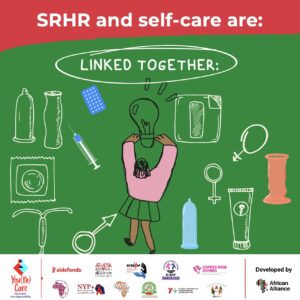Sexual and reproductive health refer to a person’s physical, emotional, mental and social well-being in relation to all aspects of sexuality and reproduction, not merely the absence of disease, dysfunction, or infirmity. A positive approach to sexuality and reproduction should recognise the part played by pleasurable sexual relationships, trust, and communication in promoting self-esteem and overall well-being.
Sexual and reproductive health and rights (SRHR) refers to everyone’s right to have full control over their body, sexuality, health and relationships. People have the right to make free and informed decisions about all things related to their sexuality and reproduction without any form of discrimination, coercion, violence and other rights violations (including threats thereof).
Our SRHR Programmes
The BRILLIANT Consortium (BRinging Innovation to cLinical and Laboratory research to end HIV In Africa through New vaccine Technology), led predominantly by African women scientists, comprises a multi-disciplinary collaboration from Nigeria, Uganda, Kenya, Tanzania, Zimbabwe, Zambia, Mozambique, and South Africa. The consortium represents the current brain’s trust and future capacity of HIV vaccine research and development in sub-Saharan Africa, with the overall objective of developing and evaluating HIV vaccine candidates emanating from our continent.
According to The United Nations Population Fund (UNFPA) young people make up the largest and fastest growing proportion of the population in East and Southern Africa, with almost 208 million people aged 10 to 24 years old, or 32 percent in 2022. Teenagers and young people deal with many challenges while they’re growing up; unemployment and economic exclusion, unwanted pregnancies, high maternal deaths, sexually transmitted infections and gender-based violence.
Initially focused on HIV prevention, the African Alliance developed a consistent programme and practice advocating for accountability to communities affected by and participating in public health research programmes and the rollout of locally appropriate services. The current portfolio of Alliance work includes COVID-19 related research, advocacy and mobilisation, global lobbying interventions, and strategic partnership development. The Alliance works closely with a wide range of non-profit organisations in a network that, while rooted in the local, is connected to and visible in national, regional, and global actions.







